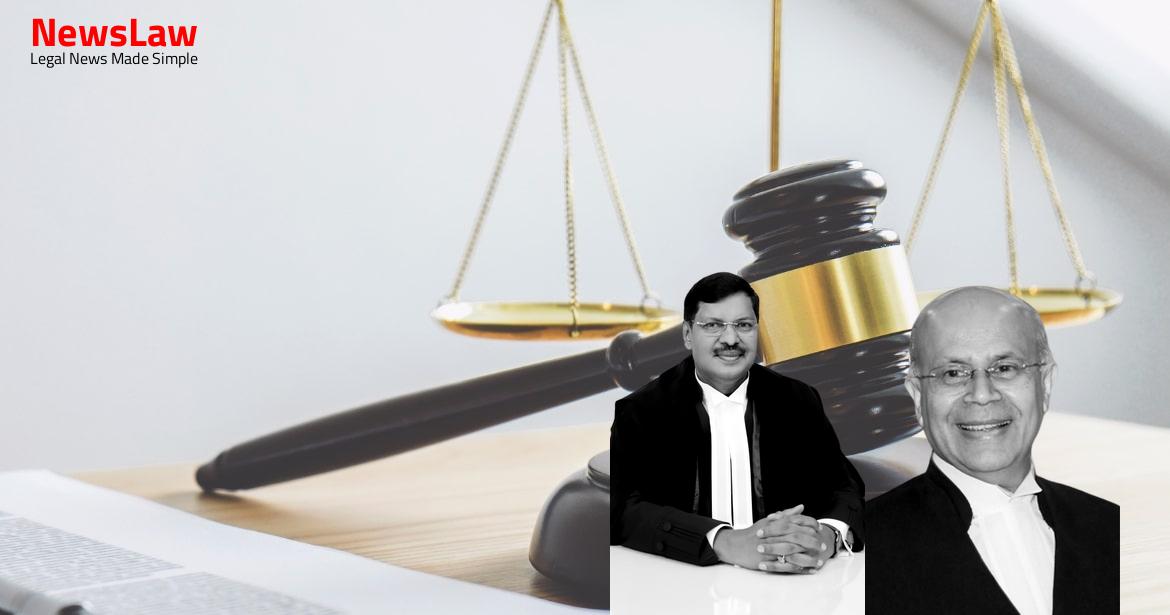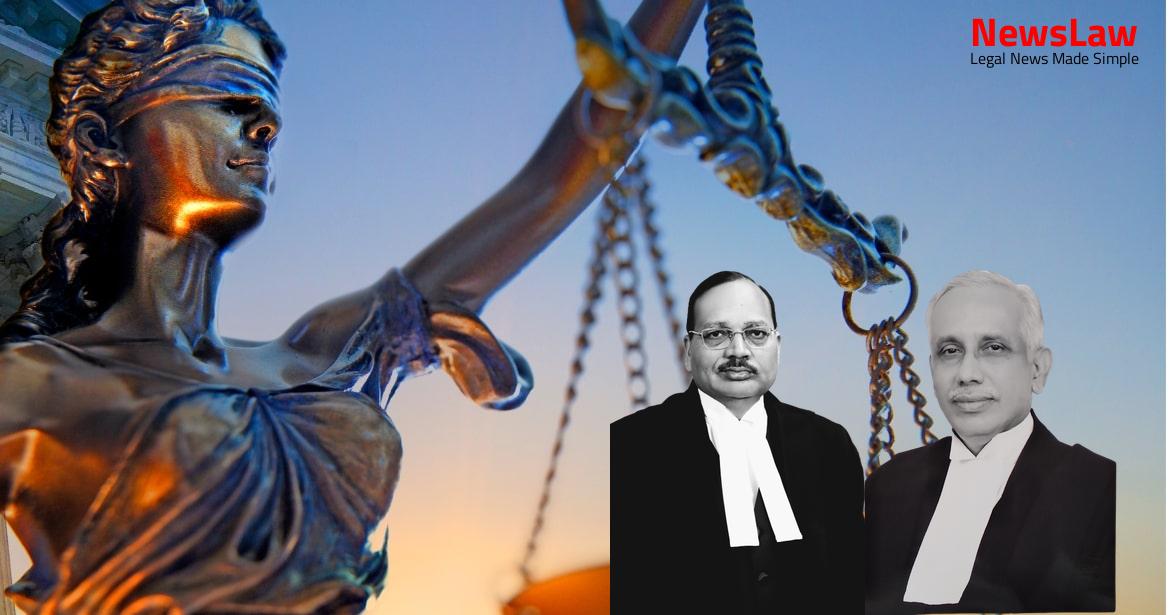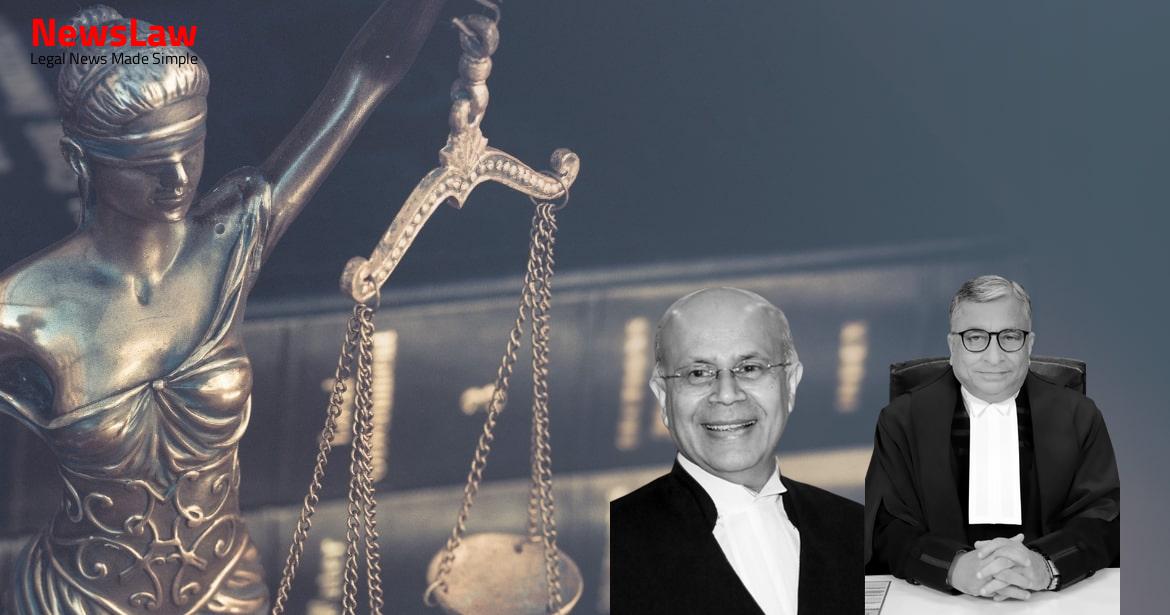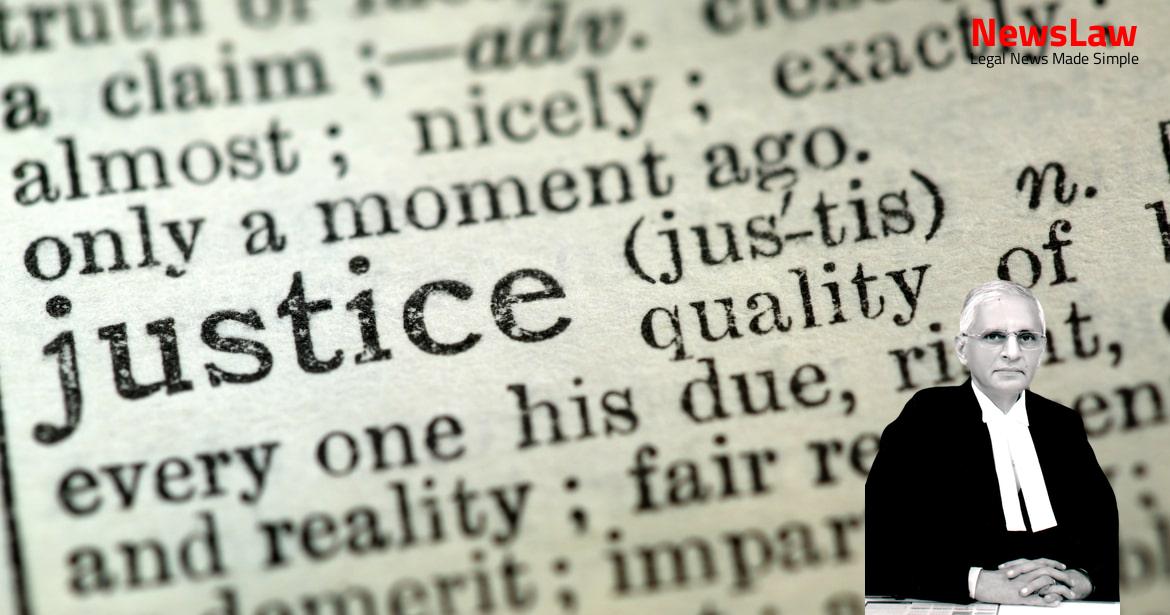A recent ruling by the Supreme Court of India has brought clarity to legal proceedings in criminal cases. The judgement, which sets a precedent for future cases, addresses crucial aspects of the law. Follow this space for more insights on this groundbreaking decision.
Facts
- The appellants were convicted under Section 302/149 of the IPC and sentenced to rigorous imprisonment for life.
- They were also convicted under Sections 323/149 and 147 IPC, receiving varied terms of imprisonment.
- There was no common object in the event, allowing for individual assaults on the deceased.
- Alternatively, the appellants may be liable for a lesser offence based on the case of Najabhai Desurbhai Wagh vs Valerabhai Deganbhai Vagh and Ors.
- The learned counsel for the State argued that there were no deficiencies in the examination of the accused under Section 313 Cr.P.C.
- Accused were armed with spears and lathis during the occurrence on 01.11.1983 at around 06.30 PM.
- Charge was framed under Sections 302/149 and 323/149 IPC against six persons.
- Counsel relied on cases including Masalti vs. State of U.P., Ranvir Yadav vs State of Bihar, and Samsul Haque vs State of Assam.
- P.W.6 was not an eyewitness to the assault but mentioned P.W.7’s presence at the scene.
- P.W.7 and 8 are injured eyewitnesses, and their testimony is crucial.
- The appellants were not given the opportunity to present their defense as they were not questioned on the accusations.
- Evidence from P.Ws.6 and 8 was challenged due to their relation to the deceased.
- The charge under Section 147 was deemed defective as it targeted only four individuals without the appropriate legal provisions.
Also Read: Judicial Standards and Compulsory Retirement Case: Supreme Court of India Judgment
Arguments
- The appellants argue that they have been significantly prejudiced in their defense due to the lack of proper opportunity to defend under Section 313 of the Cr.P.C.
- They claim that the questions posed to them during the questioning were cursory and lacked depth, spanning only two pages.
- The appellants assert that this limited scope of questioning deprived them of the chance to properly present their defense and address the accusations against them.
- According to the appellants, the casual and perfunctory nature of the questions hindered their ability to provide a comprehensive response and clarify any misunderstandings that may have arisen.
Also Read: Land Ownership Dispute: Supreme Court Judgment on Correcting Revenue Records
Analysis
- The prosecution evidence shows inconsistency in the injuries claimed by the witnesses.
- The appellants did not offer any explanation or lead evidence, claiming they were falsely accused.
- Challenges to the conviction based on non-compliance of Section 313 CrPC cannot be entertained without demonstrating prejudice.
- The witness testimonies of P.W.7 and P.W.8 are crucial in this case, supported by their injuries being examined in the hospital.
- The importance of Section 313 CrPC is to give the accused an opportunity to explain circumstances against them.
- No injury report does not undermine the credibility of witnesses’ injuries in this case.
- The relation between P.W.8 and the deceased or any previous enmity is deemed irrelevant in this context.
- Cross-examination of witnesses and the nature of ocular evidence support the lack of prejudice to the appellants.
- Obligation of the court to question the accused under Section 313 CrPC for a fair trial is highlighted.
- The convoluted petition for special leave did not demonstrate any prejudice felt by the appellants.
- The charge sheet was finalized post submission of injury reports of witnesses.
- False implication of the appellants due to previous enmity is a possibility.
- The appellants were aware of being charged under Sections 302/149 and 323/149 for a common assault.
- The objection about defective charge without evidence of prejudice is raised belatedly and thus has no merit.
- The judgment stresses on the shared common object of the appellants and co-accused.
- Falsely causing injuries to multiple individuals was denied by the appellants.
- The allegations of assault by appellants are generalized due to limited injuries found on the deceased.
- The lack of detailed questions on individual assaults by the appellants does not indicate prejudice.
- Two of the accused have passed away, and one’s fate remains unknown.
- The absence of injury reports for P.Ws. 7 and 8 only signifies defective investigation, not discrediting them as injured eye witnesses.
- Concurrent findings exist regarding the presence of the appellants, supported by the testimonies of witnesses and the officer-in-charge of the police station.
- Referring to Shobhit Chamar vs. State of Bihar , (1998) 3 SCC 455 and Fahim Khan vs. State of Bihar , (2011) 13 SCC 142, ocular evidence was considered crucial despite procedural flaws under Section 313, Cr.P.C.
- It was emphasized that the accused must show material prejudice resulting from non-examination on incriminating circumstances to challenge the trial.
- In Sukha vs. State of Rajasthan, 1956 SCR 288, it was established that objections regarding examination procedures should have been raised at the appropriate stage.
- Section 464 of the Cr.P.C provides that the absence of a charge or errors in a charge will not invalidate a finding, sentence, or order unless a failure of justice has been caused.
- During an inquiry or trial, the accused must be given the opportunity to explain circumstances appearing in the evidence against them.
- The court can question the accused at any stage, without prior warning, and must question them after prosecution witnesses but before the accused presents their defense.
- No oath is administered to the accused during their examination.
- The accused cannot be punished for refusing to answer questions or providing false answers.
- The answers given by the accused can be considered in the inquiry or trial and can be used in other proceedings related to other offenses.
- The court can seek assistance from the Prosecutor and Defence Counsel in preparing questions for the accused, and may allow a written statement from the accused as compliance with this section.
- The co-accused possibly assaulting on the head again is not highly relevant to establishing the absence of a common object.
Also Read: Justice Served: Acquittal Upheld in Pradhan v. State
Decision
- The appellants are on bail.
- The court finds no reason to interfere with the conviction of the appellants.
- The appeals have been dismissed.
- The bail bonds of the appellants have been cancelled.
- The appellants are directed to surrender forthwith to serve out the remaining period of the sentence.
Case Title: FAINUL KHAN Vs. STATE OF JHARKHAND
Case Number: Crl.A. No.-000937-000937 / 2011



